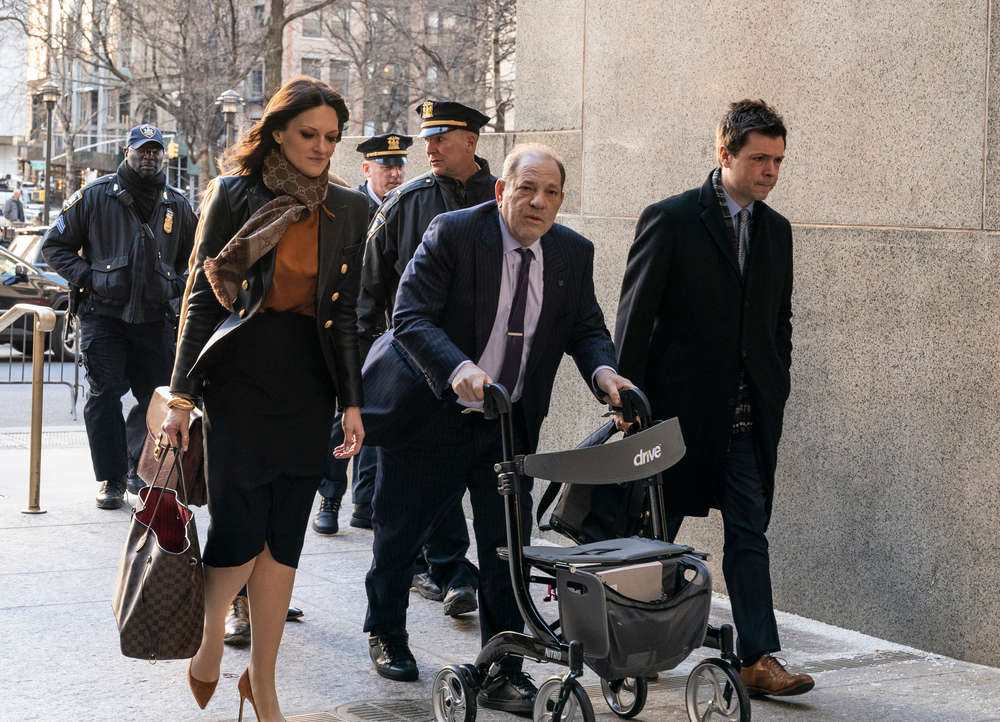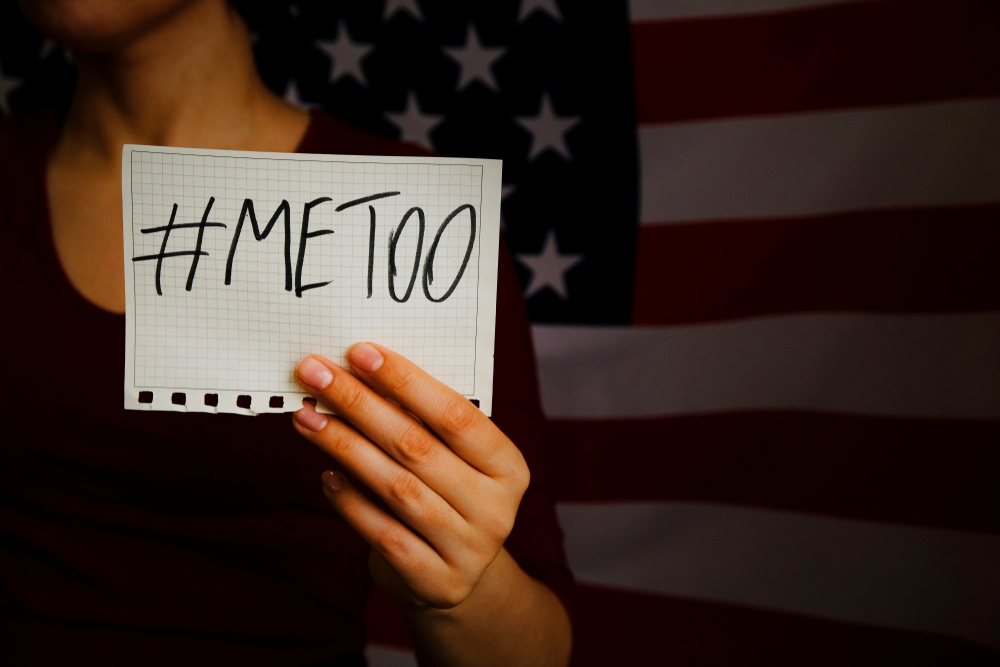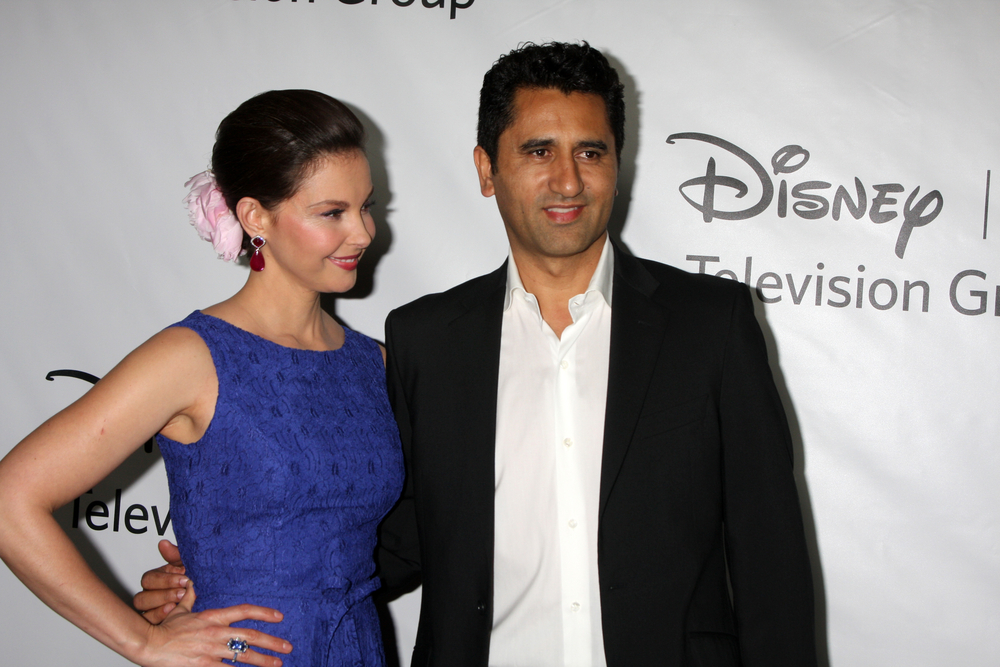Your cart is currently empty!
Ashley Judd Said No to Harvey Weinstein in 1997. He Tried to End Her Career — Decades Later, She Helped End His.

In the late 1990s, Ashley Judd was one of Hollywood’s most promising stars. Her performances in films such as Kiss the Girls and Double Jeopardy had made her a household name, admired for both her intelligence and intensity on screen. She was the kind of actress who could move effortlessly between commercial thrillers and art-house dramas. Yet behind her growing fame, Judd faced a private ordeal that would later change not only her own life but also the entire structure of Hollywood’s power dynamics. It was not a scandal of her making, but one that would reveal how the industry’s unchecked power had long protected those who abused it.
The meeting that altered her trajectory occurred sometime in late 1996 or early 1997, when she went to the Peninsula Beverly Hills Hotel to meet Harvey Weinstein. At the time, he was at the height of his influence, co-founder of Miramax and credited with producing Oscar-winning films like The English Patient and Pulp Fiction. Judd expected to discuss upcoming projects, but instead, Weinstein appeared in a bathrobe and asked if he could give her a massage. She refused, trying to maintain professionalism and leave the encounter with dignity. In later court documents, Judd’s legal team would describe the meeting as an ambush disguised as business. This event, unknown to most at the time, became a defining moment that she would later recount when the Weinstein scandal erupted in 2017.

Retaliation and Career Fallout
In the years that followed, Judd began to notice something strange. Despite strong performances and steady acclaim, the phone calls for major roles grew fewer. By the early 2000s, rumors swirled that she was “difficult to work with,” an often-used euphemism for women who had refused powerful men. The full truth emerged only two decades later. In December 2017, director Peter Jackson told The Guardian that when casting The Lord of the Rings, he had been advised by Miramax executives not to consider Ashley Judd or Mira Sorvino. He later discovered that these warnings were based on lies spread by Weinstein’s company. Jackson said he had believed the actresses were “a nightmare to work with,” only to learn years later that they were victims of retaliation. This revelation confirmed Judd’s long-held belief that Weinstein had tried to sabotage her career after she refused his advances.
In 2018, Judd filed a lawsuit in Los Angeles against Weinstein for defamation and sexual harassment, accusing him of smearing her reputation and interfering with her professional opportunities. Her legal team pointed out that in 1998, after she rejected him, Weinstein discouraged Peter Jackson and others from hiring her. Weinstein’s attorneys denied the claims, insisting he had fought to cast her in films like Good Will Hunting and that she had appeared in two Weinstein-produced movies afterward: Frida in 2002 and Crossing Over in 2009. However, Judd’s team countered that these later collaborations occurred under different circumstances and could not erase the impact of years of professional blacklisting. The case highlighted how retaliation in Hollywood often happens behind closed doors, with whispers and withheld opportunities rather than direct confrontation.

The Law’s Limits and Hollywood’s Culture Shift
In January 2019, U.S. District Judge Philip Gutierrez dismissed Judd’s sexual harassment claim. The judge ruled that, under California law as it stood in the 1990s, her relationship with Weinstein did not meet the legal definition of a workplace relationship. The ruling did not question the credibility of her account, but rather reflected how the law had failed to consider the realities of freelance and project-based industries like film. In a pointed footnote, Judge Gutierrez acknowledged that he was not determining whether Weinstein had harassed Judd “in the colloquial sense of the term,” signaling that the legal system had yet to catch up with moral common sense.
Still, Gutierrez allowed Judd’s defamation claim to proceed, ensuring she could continue seeking justice for the damage done to her career. The timing of her legal efforts aligned with broader changes taking place across Hollywood. Following the Weinstein revelations, the California legislature amended its Civil Code in 2018 to expand workplace protections to include professional relationships such as those between actors and producers. This amendment, which came too late to directly affect Judd’s case, was a direct response to situations like hers. It marked an important shift in acknowledging that power can be abused even outside traditional employment relationships. Judd’s persistence helped illuminate this blind spot, showing how outdated laws had allowed exploitation to thrive unchecked.

The Weinstein Reckoning
The first major public reckoning came on October 5, 2017, when The New York Times published an exposé revealing decades of sexual harassment allegations against Harvey Weinstein. Ashley Judd was one of the first women to go on record. Her decision to speak out gave others courage to follow. Within days, The New Yorker released another investigation detailing further accusations, including several claims of rape. Actresses like Rose McGowan, Gwyneth Paltrow, Angelina Jolie, and Asia Argento all came forward with their own stories. On October 8, 2017, Weinstein was fired by his own company. The Academy of Motion Picture Arts and Sciences expelled him less than a week later, calling his behavior “a deeply troubling problem that has no place in our society.” His wife, fashion designer Georgina Chapman, announced on October 10 that she was leaving him, saying her priority was protecting their children.
Over the following years, Weinstein faced multiple criminal trials. On February 24, 2020, a New York jury found him guilty of rape in the third degree and a criminal sexual act in the first degree. He was sentenced to 23 years in prison on March 11, 2020. In February 2023, a Los Angeles court sentenced him to an additional 16 years for another sexual assault case, this one dating back to 2013. At the time of his sentencing, Weinstein maintained his innocence, claiming he did not “deserve” life in prison. Yet the courts saw otherwise. His downfall was complete. What began with a few women speaking up had turned into one of the most consequential legal reckonings in entertainment history. And it was Ashley Judd’s willingness to put her name and face on the record that helped open the floodgates.

Ashley Judd’s Quiet Power
Throughout this long and painful process, Judd’s approach remained deliberate and dignified. She did not resort to theatrics or public outrage but instead relied on methodical truth-telling and legal precision. She became a voice for reform, advocating not only for justice in her own case but for a cultural transformation that would protect others from similar harm. In 2018, during interviews with major outlets like the BBC and The Hollywood Reporter, Judd explained that she believed Weinstein’s retaliation stemmed from his anger that she was “not frightened” of him. That refusal to cower, she said, was what made her dangerous in his eyes. Her resilience made her a symbol of integrity and courage for women across industries.
Beyond her own case, Judd became a respected activist for gender equality and human rights. She spoke at international forums, urging governments and institutions to strengthen legal frameworks protecting women from harassment. She also joined other industry figures in supporting initiatives that promote safer working environments for filmmakers and artists. Her voice was calm but powerful, focused on changing systems rather than winning headlines. Her influence extended far beyond Hollywood, touching women in fields ranging from politics to academia. In many ways, Ashley Judd became not just an actress who survived the abuse of power but a leader who helped dismantle the silence that sustained it.

The Broader Legacy of the Case
The aftermath of Judd’s case has had lasting effects on both the legal and cultural fronts. In California, lawmakers explicitly cited cases like hers when updating harassment laws to include professional relationships between creative collaborators. This change closed a major loophole that had previously allowed powerful figures to evade accountability. Across Hollywood, studios implemented new guidelines, confidential reporting mechanisms, and mandatory training to address workplace misconduct. Unions like SAG-AFTRA expanded their codes of conduct to strengthen protections for performers. These changes, though imperfect, represented tangible progress.
The cultural conversation sparked by Judd’s courage continues to shape industries far beyond entertainment. The #MeToo movement, launched in the wake of the Weinstein scandal, spread globally, giving voice to survivors of workplace harassment across sectors. From newsrooms to boardrooms, the expectation of accountability has become stronger. Yet Judd has repeatedly emphasized that this movement is not about vengeance but about building healthier systems of respect and equality. Her case demonstrated that even when justice is delayed, persistence can reshape laws and attitudes. It also revealed that true change often begins with a single voice willing to speak when silence is easier.
Reflection: The Power of Refusal
Two decades separated Ashley Judd’s refusal in that Beverly Hills hotel room from Harvey Weinstein’s final conviction. Those twenty years represent the slow and difficult evolution of justice. What began as one woman’s private act of resistance became a catalyst for a global movement that redefined how society views harassment, consent, and accountability. Judd’s story is not one of victimhood but of endurance. It is about how moral courage can ripple through time and bring down even the most powerful institutions built on intimidation and secrecy.
Her refusal that day was more than a personal act of defiance; it was a declaration of worth. In the years since, Hollywood has taken steps toward transparency and reform, though much work remains. Ashley Judd’s role in that transformation is undeniable. She reminded the world that no matter how long it takes, the truth has a way of finding light. Today, her name stands not only for her achievements as an actress but also for her unwavering courage as a woman who refused to be silenced and, in doing so, helped change the course of history.”
